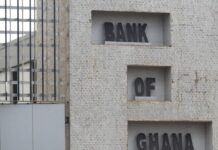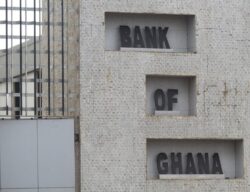By Juliet ETEFE ([email protected])
Minister of Foreign Affairs and Regional Integration, Samuel Okudzeto Ablakwa, has pledged to prioritise economic diplomacy and secure strategic bilateral agreements to create job opportunities for Ghanaians abroad.
During his vetting, Mr. Ablakwa emphasised that under his leadership, the Foreign Ministry would adopt a proactive approach to leveraging international partnerships for economic growth, ensuring that Ghanaian professionals benefit from structured migration and employment agreements with foreign nations.
“We will aggressively pursue economic diplomacy in a way that allows for bilateral agreements to be signed. Many countries are looking for Ghanaian nurses, teachers, professionals and artisans. We must take advantage of these opportunities to solve our unemployment crisis and ensure that our citizens are well protected under legal agreements,” he stated.
He highlighted the need for structured labour export programmes modelled after successful initiatives in countries like Cuba and Indonesia, ensuring that Ghanaian workers abroad are safeguarded and their contributions benefit both themselves and the nation.
“We can make sure that brain drain becomes brain gain, where these bilateral agreements will help create jobs for the young people of our country…creating the right environment for our professionals abroad to contribute meaningfully to Ghana’s development,” he stressed.
Performance-driven diplomacy
He also emphasised the need for Ghanaian embassies to play a more active role in protecting and supporting Ghanaians overseas as well as driving home business and investment opportunities for the country.
He proposed the introduction of a delivery unit to track the performance of ambassadors and high commissioners, setting clear key performance indicators (KPIs) to ensure accountability.
“When we send you there as an ambassador, it is not just about attending events. You must bring something that impacts the lives of the people. How many investors are you bringing in? How many industries? What tangible benefits are you securing for Ghana?” he questioned.
Mr. Ablakwa noted that Ghana spends over US$875million annually on its foreign service staff, but questioned the tangible returns on this investment. To address this, he pledged a system of performance assessments, warning that underperforming envoys would be reshuffled if they failed to deliver within a year.
“We are going to change the perception that foreign service is abstract and removed from national development. If within one year we are not seeing benefits, there will be reshuffling. We need dynamic and proactive ambassadors who serve the national interest,” he asserted.
He expressed concerns about the responsiveness of the embassies advocating for a dedicated consular fund to assist distressed Ghanaians abroad.
Passport reforms
Also, part of priorities when approved, the Foreign Minister-designate announced major reforms, including revamping and modernising the country’s passport system.
He noted backlog of over 70,000 uncollected passports, blaming inefficiencies and middlemen; as such, he proposed integrating the Ghana Card with passport applications, enabling online submissions and home deliveries via courier services.
“I will like to use technology to reform our passport services, and I do not think that in this age, Ghanaians with Ghana Card should be queuing to register for passports,” he stated.
Trade
The nominee also emphasised that trade diplomacy must be at the core of Ghana’s foreign relations to drive economic growth and reduce reliance on aid.
He noted that with increasing global inward-looking policies and shifting economic alliances, Ghana must strategically position itself to benefit from international trade partnerships.
“A well-structured economic diplomacy agenda, backed by capacity-building initiatives and clear key performance indicators (KPIs), is essential to ensure that trade representatives contribute meaningfully to national development,” he stated.
He added that prioritising trade over aid will foster self-reliance, create jobs and improve living conditions, ultimately reducing economic hardships.
Position on regional integration
Responding to questions about Ghana’s diplomatic stance regarding the recent withdrawal of Burkina Faso, Mali and Niger from the Economic Community of West African States (ECOWAS), Mr. Ablakwa affirmed the country’s commitment to regional integration and peace-building efforts.
“President John Dramani Mahama firmly believes in the principles of regional integration and diplomacy. While we continue to promote democracy and stability, we must acknowledge that these nations remain our closest neighbours, and disengaging completely would be counter-productive. We must sustain dialogue to ensure stability in the region, as violent extremism and terrorism in these countries pose direct security threats to Ghana,” he explained.
He also reaffirmed the country’s adherence to a non-aligned foreign policy while advocating for peaceful resolutions to conflicts.
He emphasised that Ghana will continue to be “friends to all and enemies to none”, as guided by the principles of Ghana’s foreign policy since 1959.
Environmental and climate change commitment
The nominee noted the importance of climate diplomacy in shaping Ghana’s international engagements.
He lamented the inconsistency of major polluting nations in addressing climate change, citing the withdrawal of the United States from the Paris Climate Accord as a setback; however, noting Ghana’s resilience.
“Ghana remains committed to fulfilling its obligations under international climate agreements. While the Ministry of Environment and the Lands Ministry will lead Ghana’s climate policy, the Foreign Affairs Ministry will facilitate global engagements to ensure that Ghana’s climate interests are well-represented,” he stated.










